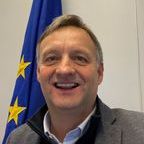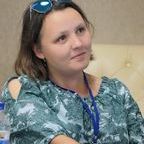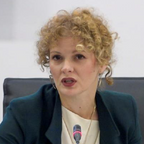Speakers



11:30 – 12:30 CEST, 11 September 2025 ‐ 1 hour
Room: G1
Panel session
Building on the 2023 and 2024 sessions on ‘what’s new in the Western Balkans’, this session will expand the geographical scope to all countries looking to join the EU. We will look at how to increase cooperation between their institutions and those in the EU, considering examples of successful cooperation and trying to address the main challenges hampering these exchanges. We will also give ample space for participants to share their experiences and learn from each other.
Topics:
Erasmus+ Transnational education partnerships




European Commission, Belgium
Filip van Depoele is an economist by training (University of Leuven, Belgium) and subsequently studied European Economic Integration (College of Europe, Bruges, Belgium) and International Relations (Johns Hopkins University, Bologna, Italy). He worked for a number of years in the private sector (banking) before joining the European Commission in 1997. Filip held several positions in the Directorate General for Employment and Social Affairs and the Directorate General for Competition before moving to the Directorate General in charge of Education, Youth, Sport and Culture. After having managed the Policy Coordination unit for 5 years, he is currently heading the International Cooperation unit.

Zaporizhzhya National University, Ukraine
Olena Tupakhina is Vice-Rector for International Affairs and Projects at Zaporizhzhia National University, where she provides strategic leadership for internationalization and institutional development. She has over 20 years of experience in higher education management, having served as Vice-Rector, Head of the International Relations Office, and Director of the Foreign Languages Centre. In these roles, she has led diverse teams, supervised strategic units, and coordinated complex projects that significantly expanded the university’s global reach.
National Erasmus+ Office in Montenegro, Montenegro
Vanja Drljević has over 20 years of experience in international education and cooperation, advocacy, higher education policy, mobility project management, recognition issues, EU integration, monitoring, quality assurance, public relations, etc. She began her career in 2001 at the Agency for International Scientific, Educational and Cultural Cooperation, later joining Montenegro’s Ministry of Education to manage the Tempus programme and lead the ENIC centre for diploma recognition. Since its establishment, she has headed the National Erasmus+ Office in Montenegro, supporting higher education institutions in accessing EU funds, strengthening capacities through training, and fostering partnerships with EU bodies, local authorities, universities, civil society, and the private sector.
She has contributed to numerous research studies and publications on Erasmus+ and Tempus impact, and spoken at national, regional, and international events, including Western Balkans ministerial meetings. Active in EU–Montenegro accession discussions, she has served on working groups drafting education laws and strategies. She speaks English, Italian, and French, holds ENA training in public administration, and is a licensed English court interpreter.